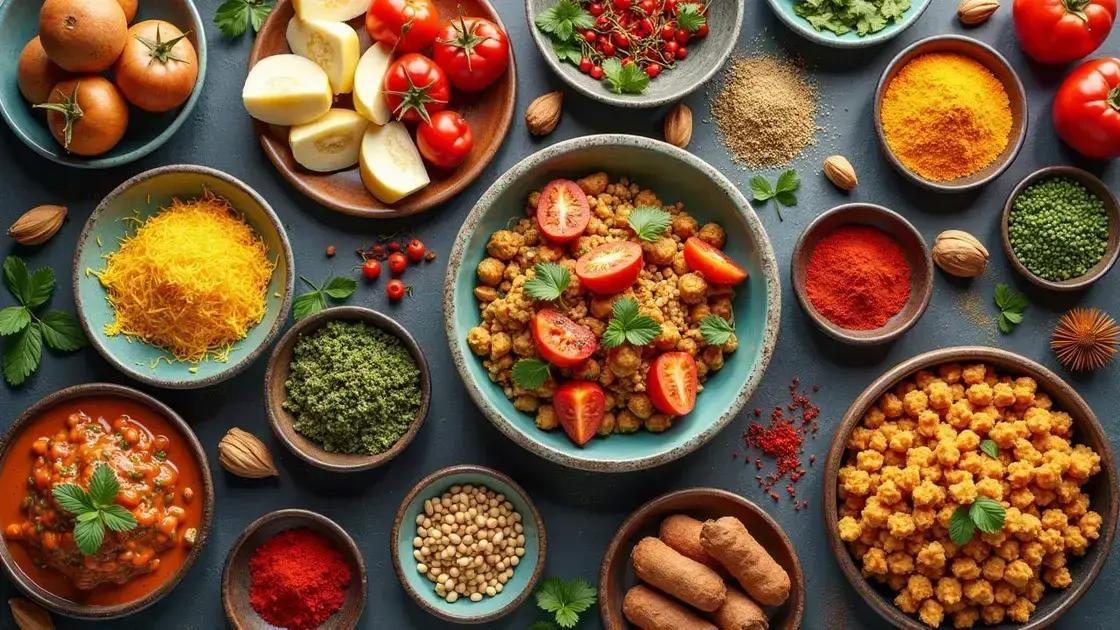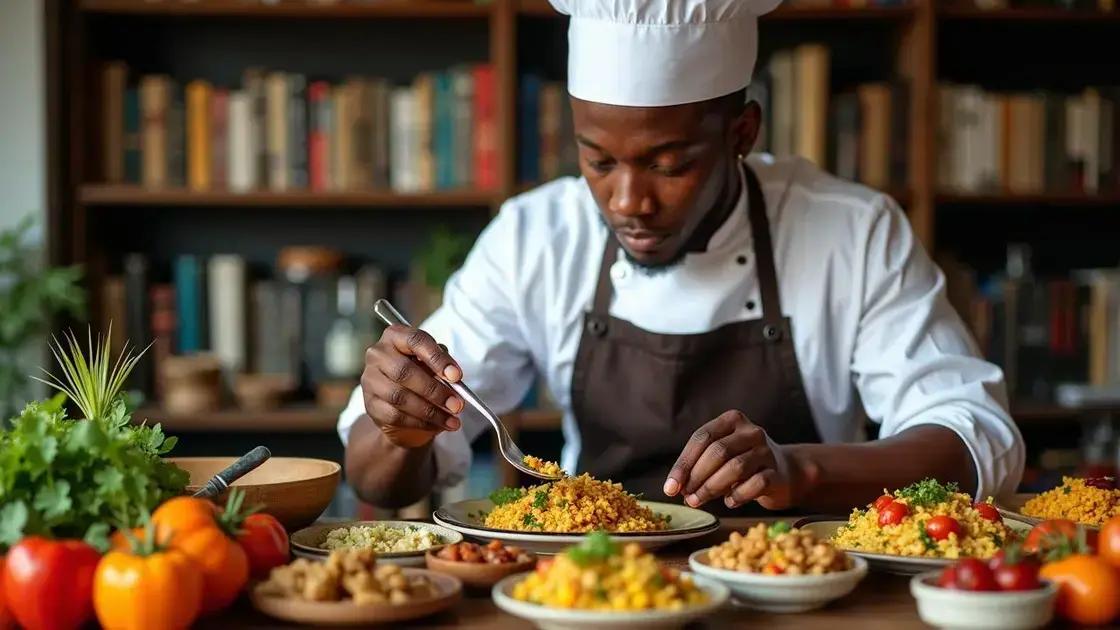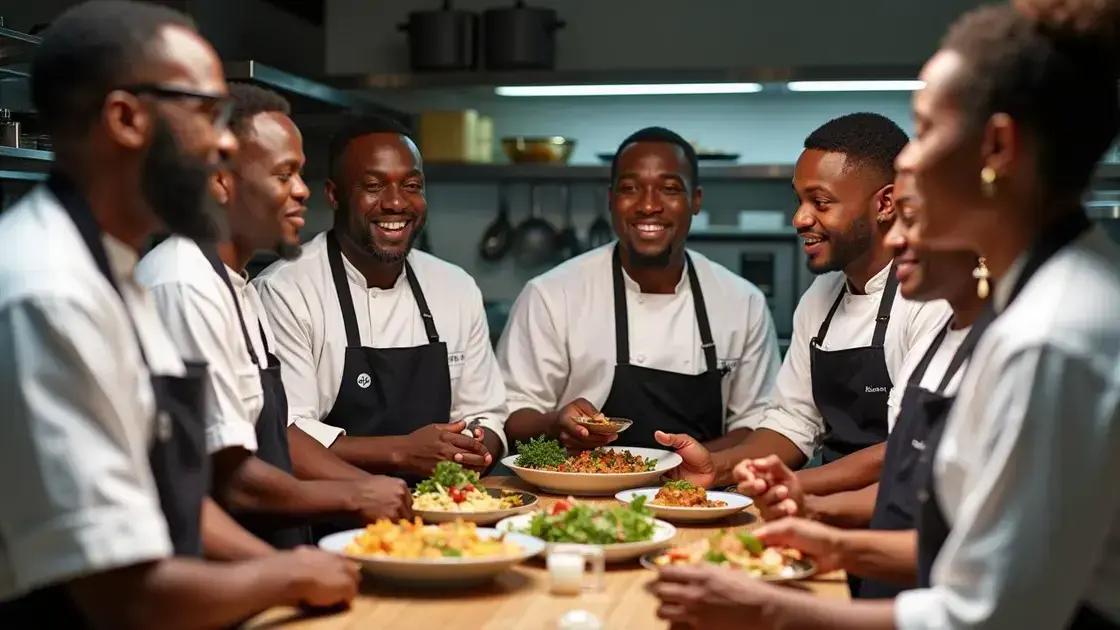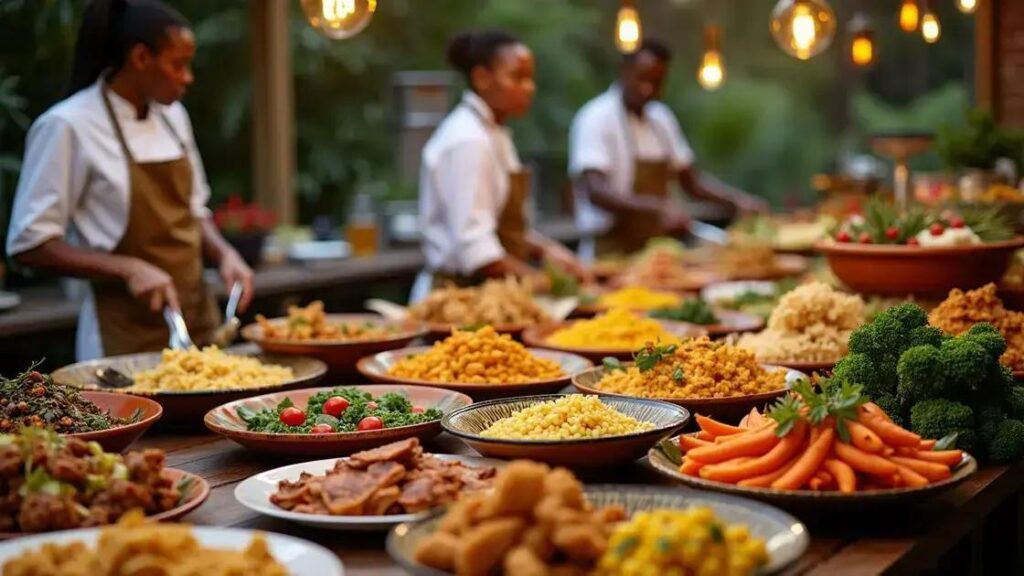The African recipe is validated by professionals through taste testing, research, and collaboration, ensuring authenticity while incorporating modern techniques, making these dishes relevant and evolving in today’s culinary landscape.
Is the African Recipe backed by professionals? For food enthusiasts and culinary explorers, the authenticity and quality of recipes are paramount. In the realm of African cuisine, questions arise about the expertise that shapes the dishes we love. This article delves into the origins of African recipes, how professionals validate these culinary delights, and insights from expert chefs who share their thoughts on the matter.
The Origins of African Recipes

The origins of African recipes are rich and varied, shaped by diverse cultures, environments, and histories. Each region has its unique approach to cooking, influenced by the ingredients available and the traditions passed down through generations.
Ingredients and Influences
Traditionally, African recipes make use of local ingredients such as grains, vegetables, meats, and spices. For example, staple grains like millet, sorghum, and rice often form the basis of many dishes. Spices such as ginger, garlic, and chili add distinct flavors, while cooking techniques range from steaming and frying to grilling and baking.
Historical Context
The history of trade and migration across the African continent has also played a significant role in shaping recipes. The introduction of new ingredients, such as tomatoes and potatoes from the Americas, has blended with indigenous cooking styles. This fusion has created a vibrant culinary landscape that continues to evolve.
Cultural Significance
Various African recipes are often tied to cultural rituals and celebrations. Food plays a critical role in community bonding and social gatherings, symbolizing hospitality and togetherness. For instance, dishes served during weddings or festivals are laden with meaning, reflecting the identity and heritage of the communities that prepare them.
How Professionals Validate African Dishes

Professionals play a key role in validating African dishes, ensuring that recipes reflect both tradition and current culinary standards. They often draw on their deep knowledge of local ingredients, techniques, and cultural practices to assess the authenticity of a dish.
Expert Taste Testing
One common method is through taste testing. Chefs and food critics sample various dishes, evaluating flavors, textures, and presentation. This hands-on approach helps to determine whether the dish stays true to its roots.
Research and Documentation
Another way professionals validate recipes is through extensive research and documentation. They study traditional cooking methods, regional variations, and historical contexts. By documenting these practices, they can provide a solid foundation for the recipes they endorse.
Chef Collaborations
Collaboration among chefs and food professionals also enhances validation efforts. When experienced chefs share their insights and techniques, they create a more comprehensive understanding of what constitutes an authentic African dish. This collaboration promotes respect for cultural heritage and fosters innovation in recipe development.
Expert Chefs Share Their Thoughts

Expert chefs offer invaluable insights into African recipes, providing perspectives that can enhance our understanding of these rich culinary traditions. Their experiences in various kitchens bring depth to the conversation about authentic cooking.
The Importance of Heritage
Many chefs emphasize that understanding one’s heritage is crucial when preparing African dishes. A chef from Kenya stated, ‘Knowing the origin of a recipe helps preserve its true essence.’ This connection to heritage allows chefs to honor the traditions that shape their cuisine.
Infusion of Modern Techniques
While preserving tradition is vital, expert chefs also advocate for the incorporation of modern techniques. A chef from South Africa shared, ‘We must adapt while respecting the old ways.’ This balance helps keep African recipes relevant in today’s culinary scene, drawing in new audiences.
Innovative Fusion Dishes
Furthermore, many chefs experiment with fusion dishes, combining African ingredients with global cuisines. A well-known chef from Nigeria shared, ‘Experimentation is key to showcasing the versatility of African flavors.’ By doing so, they can attract a broader audience and create exciting dining experiences.
In summary, the truth behind African recipes and professional backing
African recipes hold a wealth of history and tradition, validated by chefs who respect and understand their origins. The fusion of modern techniques with traditional methods creates a dynamic culinary landscape.
Expert chefs emphasize the importance of maintaining cultural heritage while also innovating. Their insights reveal that African cuisine is not only rich in flavors but also evolving, meeting the tastes of new generations.
Ultimately, the collaboration between tradition and modern culinary practices strengthens the authenticity and relevance of African recipes today.
FAQ – Frequently Asked Questions about African Recipes and Professional Validation
How do professional chefs validate African recipes?
Professional chefs validate African recipes through taste testing, research on traditional cooking methods, and collaboration with other culinary experts.
What is the significance of heritage in African cooking?
Heritage is crucial in African cooking as it helps preserve the authenticity and cultural context of the dishes, ensuring they reflect their traditional roots.
Can modern techniques be used in traditional African recipes?
Yes, modern techniques can enhance traditional African recipes, allowing chefs to innovate while still honoring the original flavors and methods.
What role do expert chefs play in promoting African cuisine?
Expert chefs promote African cuisine by sharing their insights, creating fusion dishes, and educating others about the rich history and diversity of the dishes.
Are African recipes evolving with current culinary trends?
Yes, African recipes are evolving as chefs experiment with new flavors and techniques, making them relevant for contemporary dining experiences.
Why is experimentation important in African cooking?
Experimentation in African cooking is important as it encourages creativity, keeps the cuisine fresh, and introduces new audiences to its diverse flavors.













